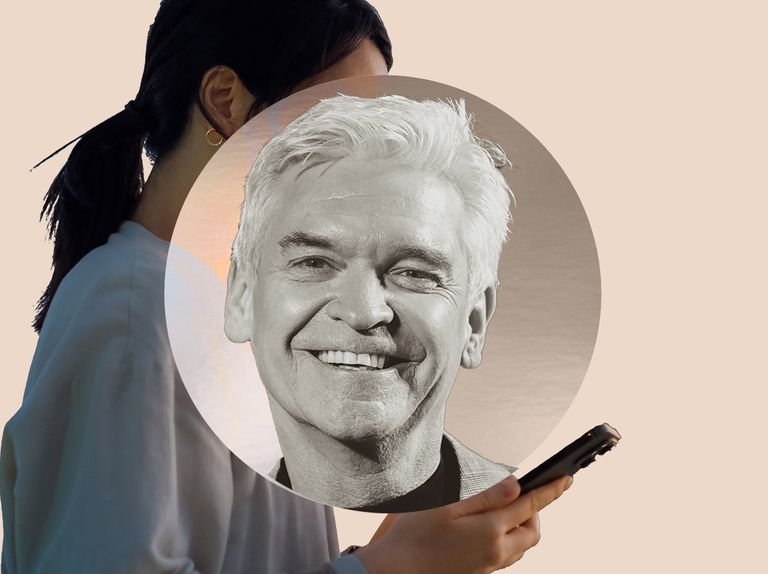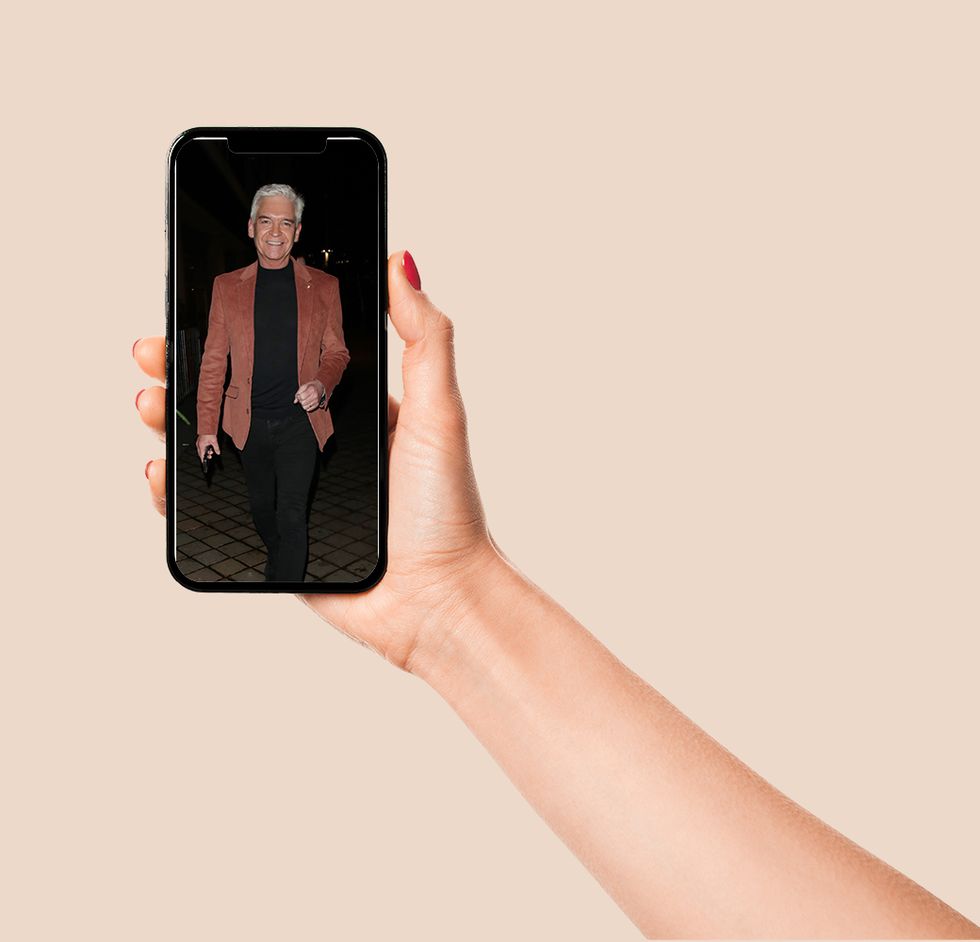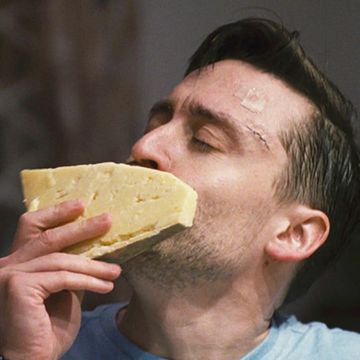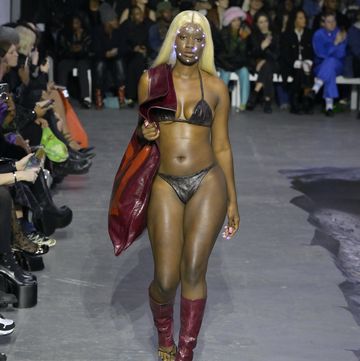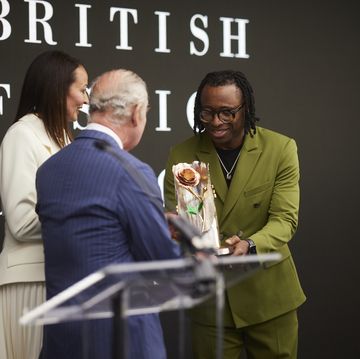Refreshing news sites, WhatsApping old friends, dissecting social media videos…admit it, you’re gripped by the Schofield scandal.
The official story, as you probably know by now, is that after 38 years in UK showbiz, Phillip Schofield, once a squeaky clean BBC children’s TV star, has left all ITV projects including flagship show This Morning. His departure happening in tandem with his admission that, not only did he have an on-off relationship with a young man who he’d helped get a job on This Morning as a runner, but that he met the man when he was in his forties and the man, then a boy, was just 15 years old.
Schofield stated the relationship was 'unwise but not illegal.' ITV also issued a statement to say that in 2020, the broadcaster investigated rumours of Schofield having a relationship with an employee. No one provided any information other than 'hearsay and rumour' and the broadcaster concluded that: 'Phillip… lied to people at ITV, from senior management to fellow presenters, to [his agents] YMU, to the media and to others over this relationship.'
At the time of writing, ITV has drafted in an external barrister to assess the facts (full disclosure, I work part-time for woo, a start-up within the company) and representatives are set to answer MPs’ questions in a committee session next week.
Many people will be completely gripped. As with so many celebrity scandals these days, the rumour mill’s already churned out enough moreish content to make a vape factory jealous, and the people keep clamouring for more.
Why is this? Why have so many people who’ve never even watched This Morning become fixated with this ongoing saga?
Two reasons jump out to me. The first is that Schofield’s fall from grace feels like a long drop from the pedestal on which we place daytime TV hosts. The second is that social media just does not take a beat to rest, and its increasingly sophisticated methods of delivery has allowed constant surveillance and amateur sleuthing to reach unprecedented levels.
The best pal of Gordon the Gopher, Schofield was a family favourite from the 1980s, with his stints in the broom cupboard as a continuity presenter. By the time he joined This Morning in 2002, he was a firm national treasure, a friendly, affable person with no spicy opinions, no sleazy vibes and not a shade of late-night creepiness. He was about as sex-adjacent as a cup of tea served by your grandma.
In recent years, however, his popularity has taken a series of knocks. It started with Schofield coming out as gay in 2020. It’s a brave thing to do, no doubt, especially as a national treasure who presents morning TV. And the goodwill and kindness he received from the public was heartening. However, for many LGBTQ+ people who’ve long lived with the 'darkness' he described yet never received that same goodwill and kindness he did, his coming out seemed cynical; too sudden, too binary. Who goes from straight to gay after a 27 year marriage without dipping their toe in a tiny bit? We weren’t owed the details, but the truth Schofield professed to tell, that he 'never had any secrets' from his wife, was not all there, it seemed.
Fast forward to last year when Schofield and co-presenter Holly Willoughby used the press queue to see the Queen’s coffin lying in state. While plenty of other journalists did this with no issue, Holly and Phil’s speed-tracking was seen as unfair because the near mononymic pair are considered celebrities rather than journalists. Over 37,000 people signed a petition to have them removed from This Morning. The criticism, in short, was that these two were so full of themselves that they expected special treatment, while even David Beckham was willing to spend a day of his life in the main queue.
The ill-will didn’t stop there, because by early 2023, Schofield’s brother Tim Schofield was in court on 11 charges of child abuse offences. Tim Schofield was found guilty and convicted by Exeter Crown Court court and sentenced to 12 years in prison. Phillip told the same court in a statement that: 'Tim said it [watching pornography with a boy who Tim later claimed had been over 16] was just this once. I told him it should never happen again.' There is no suggestion that Phillip Schofield has been involved in any criminal wrongdoing, but questions swirled online: why didn’t Schofield dob his brother in immediately? Why would a one-off be any less of a problem than a repeated offence? Why didn’t he ask if the boy was actually over 16 or not?
From here, home-grown sleuths combined little more evidence than a rumour here, a news report from legacy media there, some social media footage cobbled from somewhere and sometimes a large pinch of homophobia to create reports of what Schofield had been up to. Presented as the real truth, rather than the harmless and sweet image Phil had been deceiving us with all this time, these videos soared in popularity, precipitating lower ratings for This Morning and Schofield leaving ITV.
This sort of social media reporting is something we have to watch.... and watch out for. It’s so easy for journalists like me to deride the lack of source-consulting, fact-checking and ethical sounding out of stories that derive from armchair forensics. But when you pore over these videos, as so many millions of people have, cross-referencing their openness with the press’s relative initial quietness, it's easy to see the allure. The motivation behind social media sleuthing is the same, at its core, as a journalist's goal. As well as wanting to reach as large an audience as possible, we all want to expose if a powerful, popular person in power is receiving unfair privileges. We all want to know if someone’s lied to us while professing to give us the truth. We’re all after a more just society, where people who do bad things don’t get away with those bad things and then try to convince us it’s all ok. And we all, bar none, want to be the one to tell the story first.
Technically, most social media platforms promise to follow the laws of the land, but that’s a bit like universities promising to remove graffiti from the toilets or dive bars, insisting they have an anti-harassment policy. A gesture, at best. So social media users speculate all they like without having to worry much about defamation, libel and all the rest.
However, although TikTok reporters got the news out long before the press did, that’s not because the press didn’t know the story. Journalists trying to break tales of corruption, ethical quandaries and general bad behaviour have the task of doing it in the way that has long been considered correct and law-abiding. This means finding sources willing to speak, not crowding them, convincing them to open up, corroborating as much as possible, fact checking countless times, then putting it in front of a team of lawyers to consider both the legitimacy of the claim and also the ramifications for the publication proposing to make it.
For all the speed at which the word gets round and the great motivations of the social media detectives, breaking these stories on social media platforms runs a terrible risk of making ignorant mistakes that can seriously muddy the waters. Alleging Schofield is criminal - he is not - because of who his brother is, is not only incorrect, it fails to recognise the stark difference between what the two men have been found to have done. Lumping all unethical behaviour into one bucket is part of what stops people who’ve experienced wrongdoing coming forward, as it suggests their story will be misrepresented. It's on all of us to make sure that telling people's personal stories: of victimhood, survival, discomfort or anything else, doesn't diminish what happened to them or exaggerate it, rather gives space for the truth to come out.
The attention is on Schofield like never before, his house sale being noted, his first time outside photographed, his every move commentated upon. And people are lapping up the content like they always did. The fact we’re still so gripped is testament to the fact that we tend to feel most upset by the people who’ve let us down the worst.
Phil has been one of Britain’s most trustworthy voices, a daytime TV star we don’t expect any sort of subversion, strangeness or sleaze from. MPs, bankers, rock stars, Hollywood directors... yeah, to an extent, we’ve come to expect this stuff from them
MPs, bankers, rock stars, Hollywood directors... yeah, to an extent, we've heard that all before. Phil’s committed such an upending of our expectations - expectations that he took advantage of to get away with the things he did - that the British public is now taking its revenge, one click and one TikTok view at a time.
